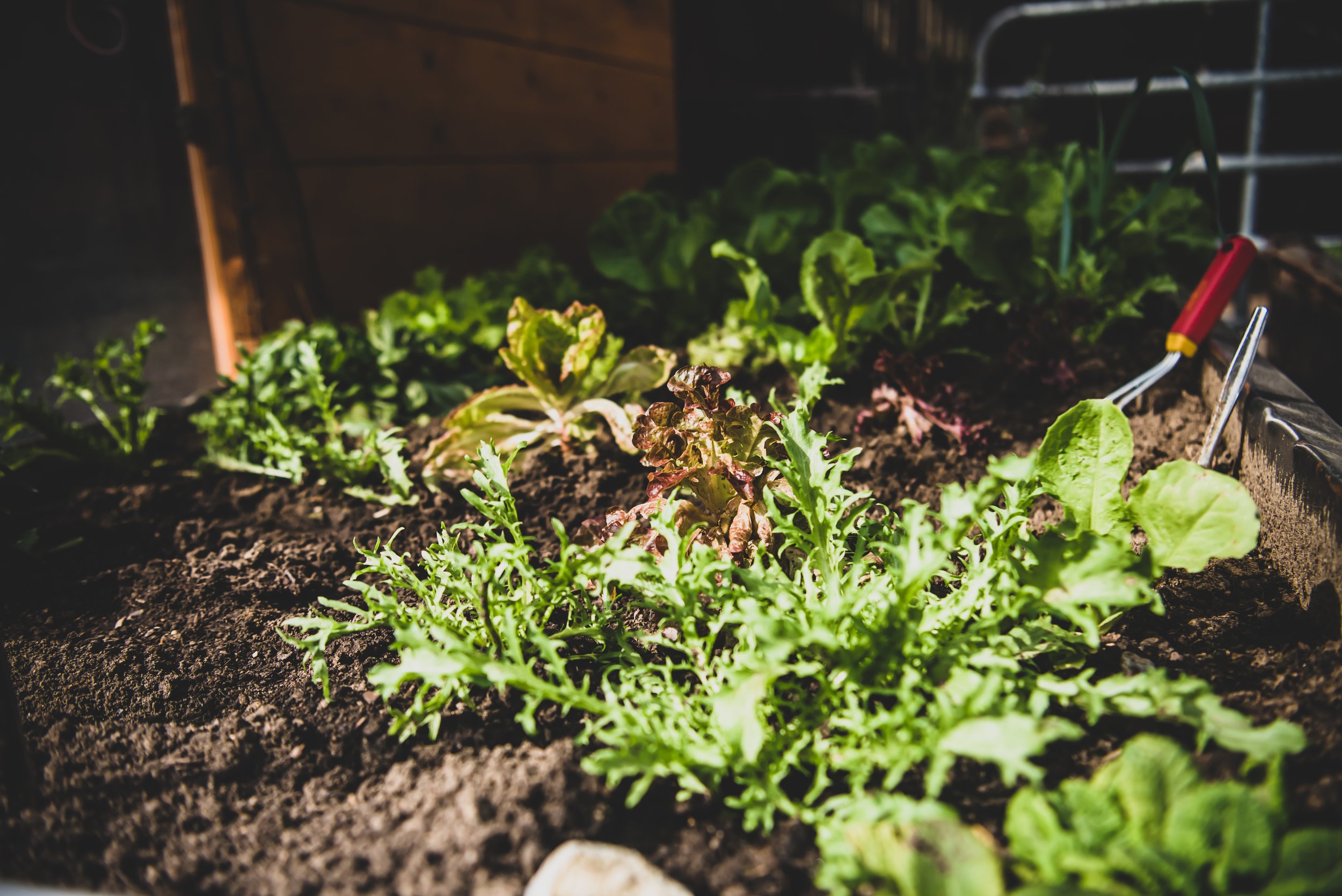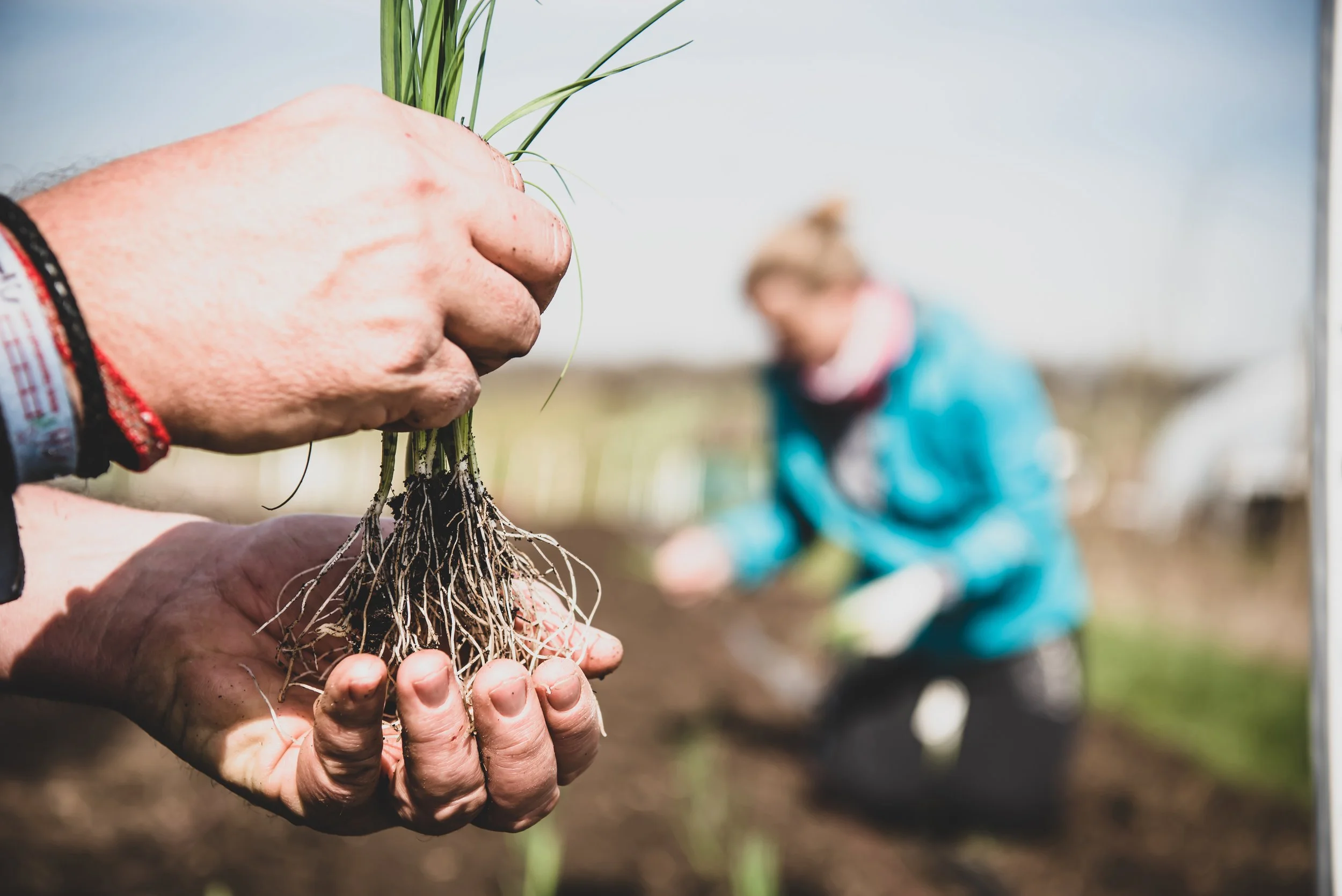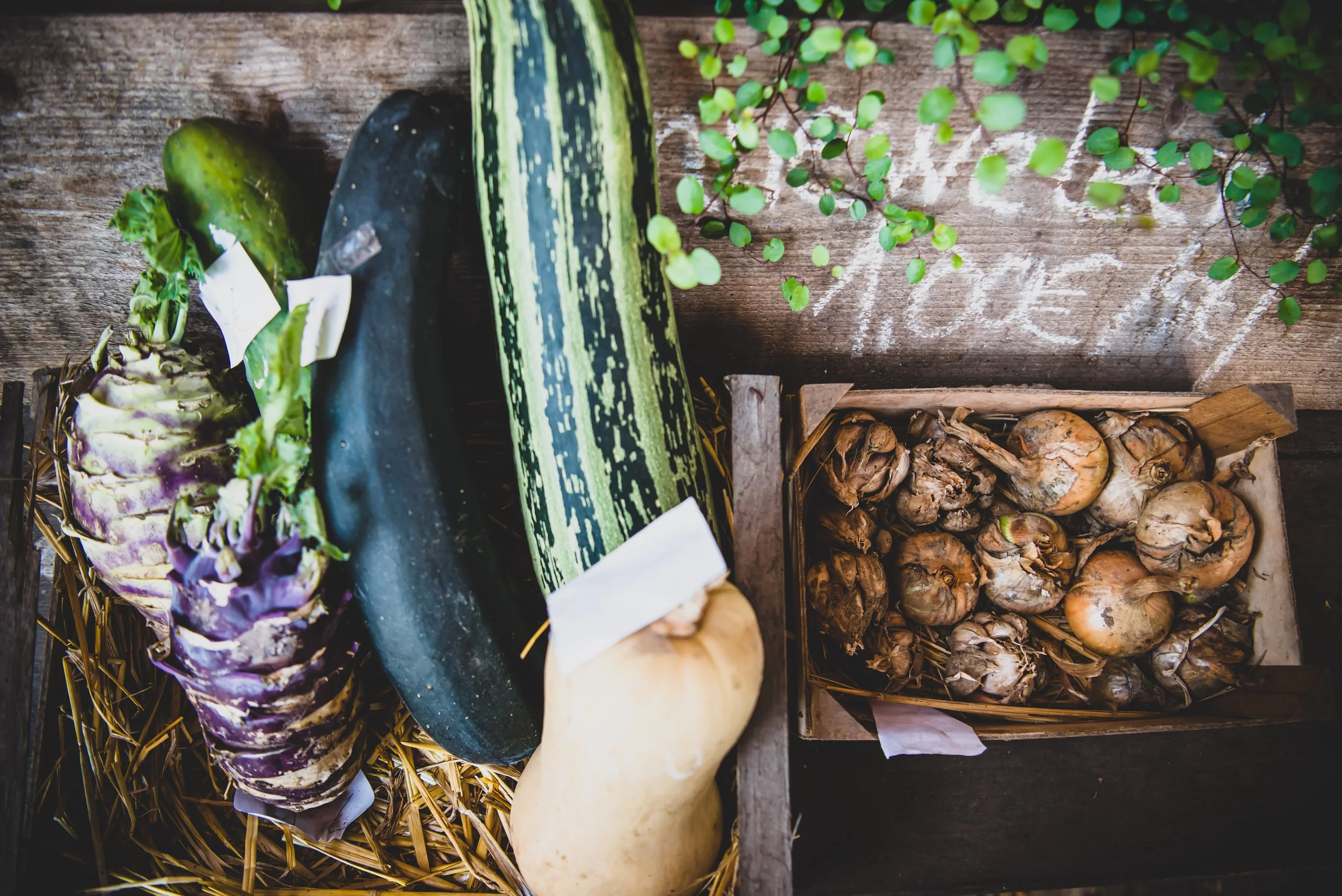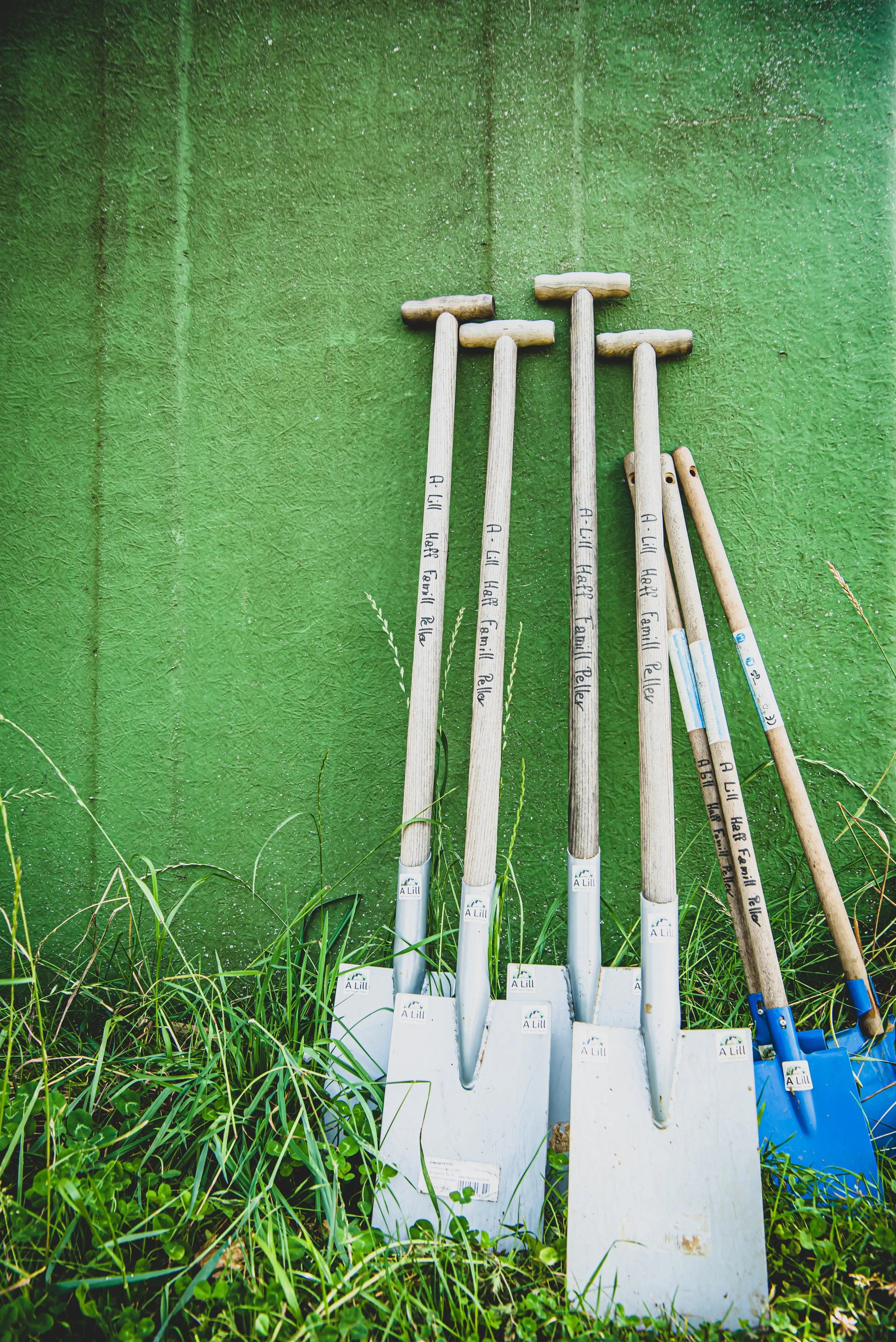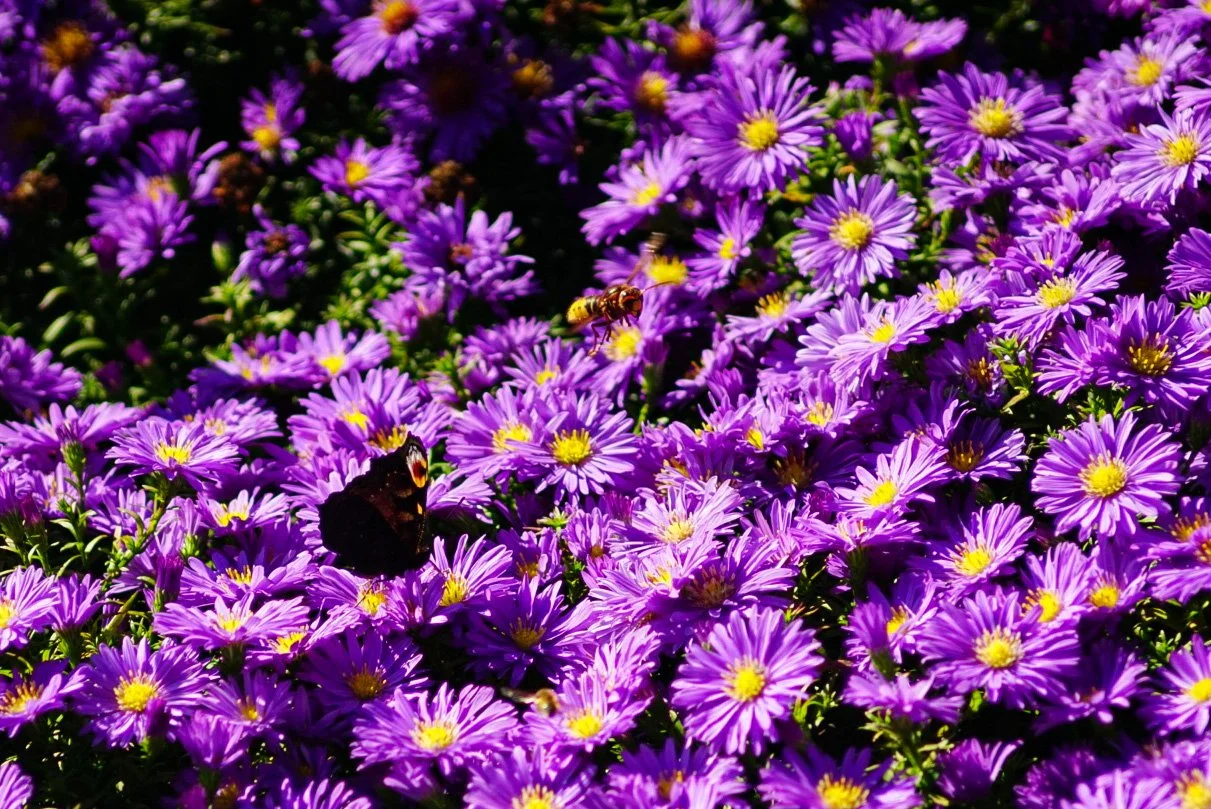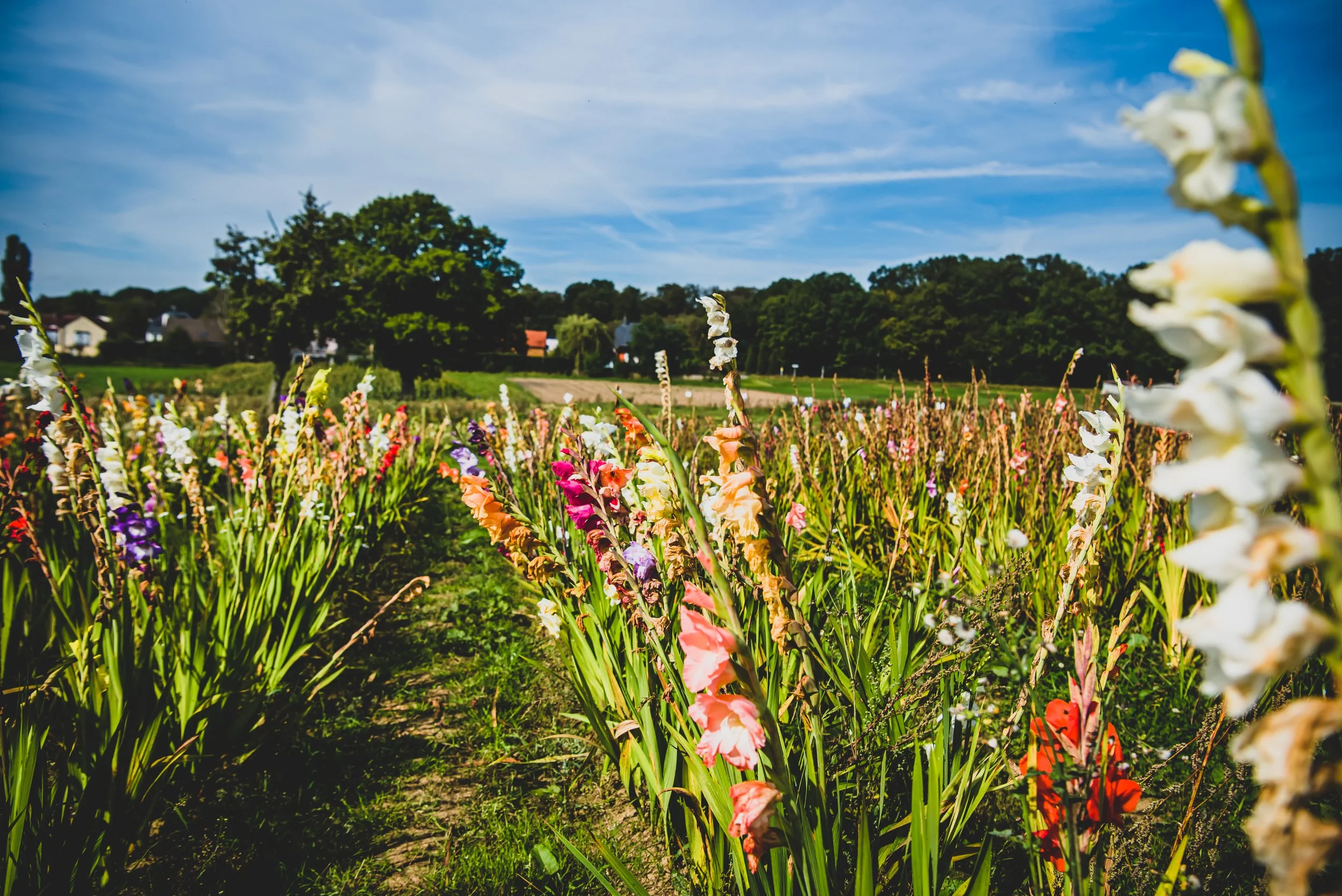Support local biodiversity in your own garden this spring
Photography by Lugdivine Unfer
With dainty snowdrops and colourful crocuses now emerging among the flowerbeds along with the warming sunshine we’ve enjoyed in recent days, the promise of spring is in the air. These late winter weeks are the perfect time to learn new knowledge and skills and start planning your spring and summer garden. Whether you have access to a balcony or a garden, you can play a role in helping increase the biodiversity and resilience of our environment by supporting pollinators with native plants and even growing some of your own herbs, vegetables and fruits.
As we looked at in Issue 1 of Neighbour Magazine, pollinators including wild bees and butterflies are under threat from climate change, pollution and the destruction of their habitat, often driven by industrial agriculture. The use of pesticides has a toxic effect on these sensitive insects, while monocropping means a loss in plant diversity. But we can unwittingly be reducing their numbers in our own backyard through common activities like frequently mowing our lawns and trimming our greenery, removing the native host species, often seen as weeds, that pollinators rely on. As John Park of local non-profit Honey Bee Wild says, “Messy is the new tidy.”
With a wide variety of workshops and events around organic gardening coming up in March and April, there are many opportunities to learn new techniques and source locally-grown, pesticide-free seeds and plants to get your garden off to a positive start this spring.
Photography by Lugdivine Unfer
Community Gardening
A great place to get started as a novice gardener is your local community garden. These neighbourhood hubs help foster new connections while letting you learn new skills from more experienced gardeners and try your hand at tending your own vegetable patch. Dotted around Luxembourg, chances are there’s one near you. And if not, you can always start your own!
Eise Gaart Community Garden Portal
Eise Gaart is a holistic gardening portal that maintains a map of the country’s community gardens, information on citizen seed networks, resources for starting your own community garden and general tips on how to cultivate food. Eise Gaart also holds workshops in English, French, Luxembourgish and German throughout the year, with topics ranging from permaculture theory and pollution analysis to preparing your seedlings and planting a herb spiral.
Join their next English workshop “Lunch in the Gaart & Sowing” at Belval Gaart on March 11th.
View the full list of upcoming workshops
City of Luxembourg Community Gardens
The City of Luxembourg offers a list of community gardens within the commune as well as training sessions on environmentally-friendly gardening. If you live in the city, find out how to get in touch with your local garden here. Locations so far include Bonnevoie-Kaltreis, Limpertsberg, Gare/Ville Haute, Pfaffenthal and the Grund.
Community Garden Bonnevoie Kaltreis - Photography by Philippe Fettes
Book: Les Jardins Communautaires du Luxembourg
Want to discover the world of community gardens in Luxembourg and get some inspiration for your own garden? Then check out the recently published ‘Les Jardins Communautaires du Luxembourg’ book from CELL. You’ll find it in most bookshops around the country or you can order it online from Ernster.
Information and Knowledge
Already have access to a patch of land and want to learn more about designing a productive and environmentally-friendly garden? Sign up for a permaculture workshop to learn all about this popular method of gardening that mimics natural ecosystems to create productive gardens where biodiversity can flourish. In addition to the workshops by Eise Gaart above, there are a number of other places to learn the basics. You can also learn more about planting for pollinators and avoiding pesticides thanks to resources published by local non-profits.
Photography by Lugdivine Unfer
March 20th - Introduction to Permaculture in Manternach
The nature centre A Wiewesch is hosting this workshop in English on Sunday, March 20th in Manternach with the aim of introducing permaculture from both a theoretical and practical perspective. You’ll learn the basic concepts as well as be introduced to examples from around the world.
March 20th - Permaculture Action Day in the Bee Garden
Also on March 20th, the edible flower garden Botanika is hosting its annual event ‘Permaculture Action Day in The Bee Garden’. Participants will learn more about how to make their garden more bee friendly, while helping get Botanika’s garden ready for spring through planting, weeding, and weaving with hazel. You’ll also have the opportunity to tour the Botanika garden and even taste some of their fresh herbal tea and cakes.
Mycelium - Ecological Design Consultancy
Mycelium is a local consultancy that regularly offers courses and workshops on topics around permaculture, including the internationally-recognized Permaculture Design Certificate. It’s based at the Ferme du bout du monde, located just over the border in Arlon, Belgium, where you can take part in community-focused volunteer days to learn new skills while helping out.
Ouni Pestiziden
Since 2009, the ‘without pesticides’ movement has been campaigning for local municipalities as well as private households to abandon pesticides. The largest part of their work lies in raising awareness and providing technical support to public authorities and political leaders, planning offices, gardeners and landscape maintenance companies, citizens and other actors who come into direct or indirect contact with pesticides. Their website offers a range of resources (mainly in German) around creating natural gardens.
natur&ëmwelt
This non-profit organisation works to safeguard biodiversity in Luxembourg through raising awareness, advice, practical, scientific and political actions at local, national and international levels. You can request advice on nature protection through their website, buy guides to the local flora and fauna, shop bird-feeders and bird houses, and take part in their guided nature walks.
Photography by Lugdivine Unfer
Gardening in Luxembourg Facebook Group
The Gardening in Luxembourg Facebook group provides members with a place to exchange pictures, advice, seeds and plants within the country. With close to 2,000 members, you’re bound to discover a new tip or trick.
Seeds and plants
Once you’ve planned out your garden, you’ll need to find the seeds and plants to get it started. Although locally grown organic plants and seeds aren’t readily found in most garden centres, you can still source them from several local organisations and events.
March 13th - Seed Fair at Generatiounsgaart Beefort
CELL is organising its first seed fair at the community garden Generatiounsgaart Beefort. Seeds from a number of producers from Luxembourg and Germany, including SEED mentioned below, will be available for sale, and you can also exchange your own pesticide and chemical-free seeds with others.
Find the full details on Facebook
SEED
SEED is a non-profit organisation that aims to provide gardeners, especially amateur ones, with local seeds. The seed network was created to develop cultivated biodiversity in Luxembourg and raise awareness concerning the importance of seeds for societies. You can buy their seeds with a donation at a number of locations including CITIM library in Luxembourg City and MESA café in Esch-sur-Alzette.
Photography by Soeren Salvatore
Krautgaart
Krautgaart, a community supported agriculture project mentioned in our previous article, offers a variety of local, organic and fairly-grown young plants for sale each spring.
Bourse aux Plantes
Hosted by the CELL, this annual plant fair lets you exchange your own plants with other gardeners as well as buy organically grown fruit, vegetable and herb plants from local producers. The event is usually organised around May - follow CELL on Facebook to be notified about the next one.
CELL-Transition Hub in Luxembourg on Facebook
SICONA
SICONA is the nature conservation syndicate active in over 40 municipalities in the south and centre of Luxembourg. Thanks to their efforts there are now more trees, hedges and flower strips in the SICONA municipalities than there were 25 years ago. They offer locally produced wild plant seeds through a number of sales partners, ideal for creating your own wildflower meadow and planting edges to increase biodiversity. They also give out free native pollinator plants to residents in participating municipalities through their Action Päiperlek campaign to encourage the creation of butterfly-friendly gardens.
Photography by Lugdivine Unfer

